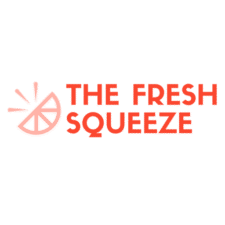If you’ve ever dealt with nails that peel, chip, or just won’t grow, you know how frustrating it can be. While nail polish and treatments can help on the surface, the real solution often comes from within.
Your nails are made of keratin — a protein that relies on vitamins and minerals to grow strong and resilient. When your body doesn’t get enough of certain nutrients, the first signs can show up in your nails as brittleness, ridges, or slow growth.
Here’s a science-backed breakdown of four essential nutrients — biotin, zinc, iron, and vitamin E — and how they can transform your nail health.
1. Biotin (Vitamin B7): The Nail Strengthener
Why it matters:
Biotin helps your body convert food into energy and plays a key role in keratin production — the protein that forms nails, skin, and hair.
The science:
Studies suggest that people with brittle nails who supplement with biotin experience improved nail thickness and reduced splitting. One small study showed nail thickness increased by 25% after biotin supplementation.
Food sources: Eggs, almonds, walnuts, salmon, and sweet potatoes.
Supplement tip: Most biotin supplements come in the 2,500–5,000 mcg range — but check with your doctor before starting.
2. Zinc: The Growth Supporter
Why it matters:
Zinc helps with cell division and protein synthesis, both essential for healthy nail growth. Without enough zinc, nails may develop white spots, ridges, or become weak.
The science:
Research links zinc deficiency to delayed wound healing, poor immunity, and brittle nails. Restoring zinc levels often improves nail appearance and strength.
Food sources: Pumpkin seeds, lentils, chickpeas, beef, and cashews.
Supplement tip: Adults typically need 8–11 mg per day — too much zinc can cause imbalances, so avoid megadoses.
3. Iron: The Oxygen Carrier
Why it matters:
Iron carries oxygen in your blood — including to your nail beds. Without enough iron, nails may become thin, brittle, or even develop a concave (spoon-like) shape, known as koilonychia.
The science:
Iron deficiency is one of the most common nutritional causes of brittle nails, especially in women. Correcting low iron can restore stronger nail growth.
Food sources: Spinach, red meat, beans, tofu, and pumpkin seeds.
Supplement tip: Only take iron under medical supervision. Too much iron can be harmful, and supplementation is most effective when deficiency is confirmed by blood tests.
4. Vitamin E: The Moisture Protector
Why it matters:
Vitamin E is a fat-soluble antioxidant that protects cells from damage and helps maintain nail moisture. Dry nails are more prone to splitting and peeling — vitamin E can help keep them flexible.
The science:
Studies show that vitamin E supplementation may improve nail appearance in people with yellow nail syndrome and can help reduce brittleness caused by oxidative stress.
Food sources: Sunflower seeds, almonds, spinach, avocados, and olive oil.
Supplement tip: Look for mixed tocopherols for better absorption, or apply vitamin E oil directly to nails and cuticles for targeted hydration.
Putting It All Together
For strong, healthy nails:
-
Eat a balanced, nutrient-rich diet. Whole foods should always be the first line of support.
-
Hydrate. Nails, like skin, thrive when your body has enough water.
-
Use supplements when needed. If your nails remain brittle despite good nutrition, a doctor can test for deficiencies in iron, zinc, or other key nutrients.
-
Protect externally. Moisturize cuticles, wear gloves during cleaning, and avoid harsh chemicals to prevent unnecessary damage.
The Bottom Line
Brittle nails aren’t just a cosmetic issue — they’re often a sign your body is missing something it needs. Nutrients like biotin, zinc, iron, and vitamin E all play vital roles in keeping nails strong, smooth, and growing at their best.
By combining a nutrient-rich diet with mindful nail care, you can create a foundation for healthier nails that look great naturally — with or without polish.
